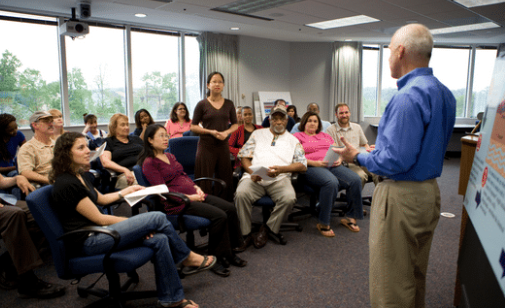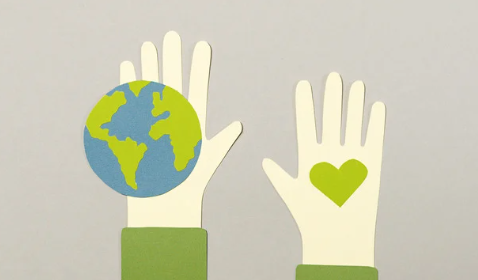
NTDs, also known as neglected tropical diseases, are the world’s neglected diseases. They shape the health of people in tropical countries and communities. For example, they are responsible for millions of deaths yearly and affect over 1 billion persons. People with neglected tropical diseases have little or no access to health care services in many tropical countries. The global community must take action to eliminate the disease’s impact on global health and development.
In this blog, we will discuss NTD day in UAE and the disease that is being addressed on this day. You will also find an extensive list of information about the disease and how to prevent it from happening in your life.
What is NTD Day in UAE?
On NTD day, the global health community comes together to raise awareness of neglected tropical diseases and galvanize efforts to combat them. The UAE established the day as part of its international health commitments and is a call to action for health providers, communities, and governments to take action on NTDs.
Named after the six neglected tropical diseases (NTDs), it serves as a united global platform for those suffering from these diseases. NTD day highlights the need for greater access to quality health care and a focus on neglected tropical diseases as global health emergencies.
The day also helps raise awareness of neglected tropical diseases among the general public and brings people together to pursue a common goal. This year’s theme is “Leveling the Playing Field,” which focuses on the important role that everyone can play in ending NTCs.
Who started NTD?

Neglected tropical diseases (NTDs) are neglected global health problems that affect people from all backgrounds and geographies. They include diseases like trachoma, onchocerciasis, lymphatic filariasis, and leprosy. These diseases cause blindness, skin disease, pricking and sharp pain, blindness, and chronic debilitating illness.
- Furthermore, WHO estimates that NTDs affect 10-25% of the world’s population and cause more than one billion disability-adjusted life years yearly.
- Neglected tropical diseases were first proposed by the United Arab Emirates (UAE) during the 74th World Health Assembly in Nairobi in 2011. They adopted the proposal at the heads of state conference in London on 30 January 2012. This day became known as ‘World Neglected Tropical Disease Day’ (NTD).
- Representatives from the World Bank, Bill & Melinda Gates Foundation and WHO attended the meeting to pledge their commitment to ending NTDs. Along with this day being marked globally as NTD day, many countries have adopted NTDs day as their official day for NTDs awareness and action.
The NTD road map 2012-2020 released by WHO on 30 January 2012 provided a global framework for addressing neglected tropical diseases through investing in health systems, developing innovative interventions and building partnerships.
The world has come a long way since NTDs first took centre stage at the world health assembly in Nairobi in 2011. However, there is still a long way to go before NTDs become a thing of the past.
What is the theme of World NTD Day 2023?
The theme of World NTD Day 2023 is “Act Now. Act Together. Invest in Neglected Tropical Diseases”. It calls for world leaders, governments, and concerned stakeholders to Act Now, work collaboratively, and invest in neglected tropical diseases to curb their progression.
Efforts to tackle neglected tropical diseases are a global health success story, and World NTD Day 2022 is a catalyst to translate awareness into action and secure increased resources for Ntds. Therefore, world leaders must recognize the day as an opportunity to raise awareness of the global health challenges associated with neglected tropical diseases.
Why is NTD important?

Neglected tropical diseases (NTDs) are a global health crisis that causes immeasurable suffering, financial hardship, disability, stigma, and social exclusion. NTDs are responsible for thousands of preventable deaths and cost developing nations billions yearly. One of the most neglected tropical diseases is trachoma, which causes blindness in some 200 million people worldwide.
Another neglected tropical disease is onchocerciasis, or “river blindness.” Indigenous to tropical areas of the world, such as Africa and the Americas, onchocerciasis afflicts millions of people with skin blindness caused by worm-like parasites.
Beyond these diseases’ devastating effects on health, they create cycles of poverty that trap individuals and communities in a cycle of poverty. Therefore, advocacy efforts such as World NTD Day are key in ensuring continued momentum towards the global elimination of NTDs.
Which of these days has been designated by the WHO as World Neglected Tropical Diseases Day?
World Neglected Tropical Diseases Day is held every year on January 30th. It is a day designated by the World Health Organization to raise awareness of neglected tropical diseases. NTDs are tropical diseases that affect the world’s poorest and most vulnerable communities.
Some of the 20 conditions recognized by the WHO as neglected tropical diseases include Buruli ulcer, dengue, chikungunya, dracunculiasis, echinococcosis, leprosy, lymphatic filariasis, onchocerciasis (river blindness), poverty-related filariasis, neglected tropical408 disease (NTD) and trachoma. The World Health Assembly unanimously adopted a proposal by the UAE to declare January 30 as ‘World Ntd Day’. Recognizing the vital role NTDs play in global health and development, the community must work together to combat them in all parts of the world.
What are the consequences of NTDs?
- NTDs cost developing countries billions of dollars each year.
- NTDs disproportionately affect vulnerable and marginalised populations, such as ethnic and religious minorities, children, rural populations, women, people with disabilities, and older individuals.
- The global burden of neglected tropical diseases (NTDs) is estimated to increase by 50% during the next 15 years.
- NTDs cause blindness, disfigurement, and other severe health consequences from the diseases’ painful symptoms.
- The diseases also prevent people from working or engaging in other activities due to their chronic debilitating health conditions. As a result, they are unable to support themselves or their families.
- NTDs can lead to poverty, as individuals cannot earn money to provide for themselves or their families.
- NTDs also significantly impact global health systems as more patients with neglected tropical diseases require treatment, increasing the demand for health services and resources.
In summary, neglected tropical diseases (NTDs) cost the global community billions of dollars annually in healthcare expenditures and lost productivity due to poor health status and impaired functioning. They cause immeasurable suffering among vulnerable populations through blindness, debilitation, disfigurement, and death.
How can neglected tropical diseases be prevented?
The world knows the devastating effects of neglected tropical diseases (NTDs). Vaccines are among the most effective preventative measures for NTDs, such as leprosy, diphtheria, yaws, and HIV. Good hygiene practices, such as washing hands with soap and water, can also help to reduce infection rates.
One of the most important ways to prevent NTDs is to control the growth of vectors, such as flies and mosquitoes. This will help to prevent the spread of these diseases. In addition, governments and non-governmental organizations (NGOs) can invest in research and treatment of Ntds to break the cycle of poverty. And lastly, awareness among people is vital so they can take preventive action against Ntds.
How many people are affected by NTD?
- NTDs affect more than 1.7 billion people worldwide.
- The diseases include leprosy, lymphatic filariasis, trachoma, onchocerciasis, and abeliosis.
- Around half of these diseases are endemic in developing countries with limited resources and weak health infrastructure.
- Around 300 million people still require NTD treatments. Still, the global elimination goal is now within reach with efforts by the global community to arrest and control diseases such as leprosy and lymphatic filariasis.
What is the economic impact of NTDs?

Neglected tropical diseases (NTDs) have a global burden of over 10% of the world’s disease burden, with Africa and the Arab world constituting 40%. NTDs cost developing countries billions of dollars every year. This is mainly due to the high prevalence of neglected diseases in these regions. The high health expenditure on neglected tropical diseases in developing countries reduces health spending on diseases of global importance, like HIV/AIDS and tuberculosis.
The world has committed itself to preventing and controlling NTDs by adopting the Sustainable Development Goals (SDGs). As part of this commitment, the world is launching World NTD Day on 2nd November 2019 to eliminate neglected tropical diseases. In addition, to contribute to world health and development, the UAE has committed to eliminating NTDs by 2030. Currently, 26 countries are collaborating to end neglected tropical diseases.
What is the global burden of NTDs?
- NTDs cause immeasurable suffering and can result in death.
- NTDs affect 1.7 billion people worldwide, with nearly 40% of the global burden shouldered by Africa.
- NTDs trap individuals and whole communities in cycles of extreme poverty.
- Since 2012, over one billion people have been reached with treatment for NTDs each year.
- The Kigali Declaration on NTDs was launched in 2020 to succeed the London Declaration on Ntds.
This global health initiative aims to improve the health of people affected by neglected tropical diseases through increased global efforts, research, and development.
The global health community must continue to partner with governments and other stakeholders to raise awareness and galvanize action to combat neglected tropical diseases (NTDs).
Conclusion
NTDs affect millions of people across the world. However, they are preventable diseases, and there is a lot that we can do to prevent them. Knowing how they are spread, who is most at risk, and how to get treatment is the first step in preventing their spread. If you want to help, educate others and volunteer as a health worker. You can also reduce the spread of disease by using insect repellent and encouraging the use of mosquito nets, treating water sources, and storing food in insect-proof containers. Click here for more on NTDs.
FAQ – What is NTD Day in UAE?

What is the full form of NTD in meeting?
- NTD stands for Neglected Tropical Diseases.
- The first NTD Road Plan was proposed at a meeting on 30th January 2012.
- The London Declaration on Ntds was adopted at this meeting.
- WHO officially supports activities recognizing World Ntds day.
The recommendation to officially support world ntds day will be considered by the 74th world health assembly in May 2021.
What is NTDs summary?
Neglected tropical diseases (NTDs) are a group of diseases caused by bacteria, viruses, parasites and fungi that global health organizations neglect. In 2021, the World Health Assembly (WHO) first proposed the neglected tropical diseases. On 30th January 2012, the London Declaration on NTDs was adopted to acknowledge the global burden of NTDs and pledge concerted efforts towards their elimination. The London Declaration was subsequently followed by the NTD Road Plan (2012-2020). In addition, global pharmaceutical companies, the World Bank, the Bill & Melinda Gates Foundation, and representatives from several national governments have pledged their commitment to eliminating Ntds.
What are the list of tropical infectious diseases?
The list of tropical infectious diseases is as follows:
- Dengue fever
- Chikungunya fever
- Zika virus
- Yellow fever
- West Nile virus
- Rift Valley fever
- Scarlet fever
- Description of neglected tropical diseases
Who is at higher risk of having a child with an NTD?
According to the World Health Organization (WHO), NTDs (non-communicable diseases) are responsible for thousands of preventable deaths yearly. In addition, they can cause impairments that keep millions of adults out of work and children out of school.
The outbreak of COVID-19 has further intensified the impact of NTDs on communities. Poverty is a major factor in the prevalence of NTDs. Women and children from low-income countries are at a higher risk of having a child with an NTD.
The WHO’s new roadmap focuses on creating innovative partnerships and strengthening countries’ capacity to sustain NTD interventions. By working together, we can make a significant impact on global health!
What is open vs closed NTD?
Open NTD refers to any day the UAE recognizes the full range of sexual orientations and gender identities. This means that businesses in the UAE must be open to all people, regardless of their sexual orientation or gender identity.
Closed NTD is a term used by some businesses in the UAE to refer to specific days on which homosexual relations are not allowed. This means that on these specific days, these businesses will not serve anyone who is openly homosexual.
All businesses in the UAE are obligated to comply with local law, which prohibits homosexual relations. This means that regardless of whether or not a business is open on closed NTDs, they are still required to follow all other applicable laws in the UAE.












